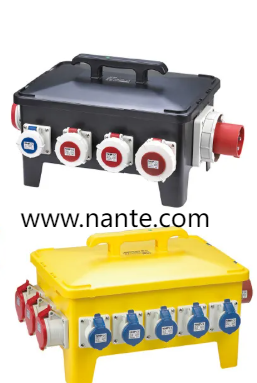Categories
Tags
-
#Safe Power Distribution
#Industrial Power Solutions
#Energy Efficiency
#Smart Power Hubs
#Modular Electrical Systems
#Weatherproof Enclosures
#Durable Material Engineering
#Seamless Integration
#Modern Industrial Aesthetics
#Sustainability
#EnergyEfficiency
#IndustrialSafety
#OutdoorElectricalSolutions
#CustomizablePowerDistribution
#CustomizableOutdoorElectricalDistributionPanel
#IndustrialSocketBox
#IndustrialSocketBoxManufacturer
#Nante
#outdoor electrical distribution panel
#Outdoor Electrical Distribution Panel Manufacturer
#Nante Outdoor Electrical Distribution Panel
#Industrial Socket Box
#Industrial Socket Box Manufacturer
#Nante Industrial Socket Box
#Concealed Socket Solutions
#Industrial Concealed Socke
#Nante Industrial Concealed Socket
#Industrial Plug
#Industrial Plug Manufacturer
#Nante Industrial Plug
#Portable Distribution Box
#Portable Distribution Box Manufacturer
#Nante Portable Distribution Box
#distribution Socket Box
#Nante distribution Socket Box
#Socket Box
#Pet Hair Remover Comb
#Outdoor Socket Box
#Pet Hair Remover Comb Manufacturer
#Tallfly Pet Hair Remover Comb
#Industrial Concealed Socket
#Nante Electrical Socket Box
#Electrical Socket Box Manufacturers
#Electrical Socket Box
#Nante Socket Box
Archives
Nante Industrial Socket Boxes For Reliable Workshop Power
-
Posted by Lars xinnyi - Filed in Technology - #Socket Box #Outdoor Socket Box #Nante Socket Box - 6 views
In industrial environments where power access drives productivity, the Socket Box plays a critical role in ensuring safe and reliable connections. From large factories to smaller workshops, these units are often positioned at the center of operations, enabling multiple machines and tools to run without interruption. As global industries adjust to higher demands, rising energy costs, and increasing pressure for safety compliance, the reliability of distribution points has become more important than ever.
Today's workplace is different from just a few years ago. Shifts in production practices, combined with attention to worker safety and sustainability, mean businesses cannot rely on outdated solutions. A modern socket box must not only deliver power but also support flexibility in how equipment is arranged, especially as many facilities adopt modular layouts and dynamic workflows. This flexibility reduces downtime and allows companies to adapt quickly to changing project requirements.
Durability is another vital factor. Heavy-duty operations often involve dust, vibrations, and constant equipment movement, creating a tough environment for electrical components. A well-built socket box provides protection against these conditions while maintaining consistent performance. This resilience is particularly important for workshops where hand tools, welding units, and testing equipment need stable connections that can withstand frequent plugging and unplugging.
Global discussions about workplace safety further highlight the need for dependable distribution equipment. With industries facing pressure to meet stricter regulations and avoid costly interruptions, organizations are investing in solutions that reduce hazards. A socket box designed for heavy-duty use minimizes risks of overloading and ensures that power is distributed evenly. It also reduces the need for makeshift connections, which are often the cause of accidents and unexpected downtime.
The versatility of socket boxes has also made them valuable for businesses that must respond quickly to shifting market demands. Portable versions allow operators to reconfigure workstations, while wall-mounted or floor-mounted units provide stability in fixed operations. This adaptability supports both small-scale workshops and large production facilities, making them a practical investment across different industries.
Sustainability is increasingly part of the conversation. As factories explore ways to improve energy efficiency, properly designed socket boxes help by managing load distribution more effectively. By reducing wasted energy and protecting against unnecessary downtime, these units indirectly support greener practices. Their long service life also means fewer replacements, reducing overall waste.
With the ongoing emphasis on efficiency, safety, and sustainability, the role of socket boxes in heavy-duty environments will continue to grow. Investing in modern equipment is not just about meeting compliance requirements but also about building resilience for the future. Factories and workshops that rely on strong infrastructure will find themselves better prepared to handle rising production demands and changing industry standards.
For those seeking practical and durable solutions, professional manufacturers provide detailed information and options to match specific operational needs. To explore more about different models and how they can be applied in various settings, visit https://www.nante.com/ . Beyond specifications, you will find insights on applications and guidance that help businesses select equipment tailored to their working environment.
